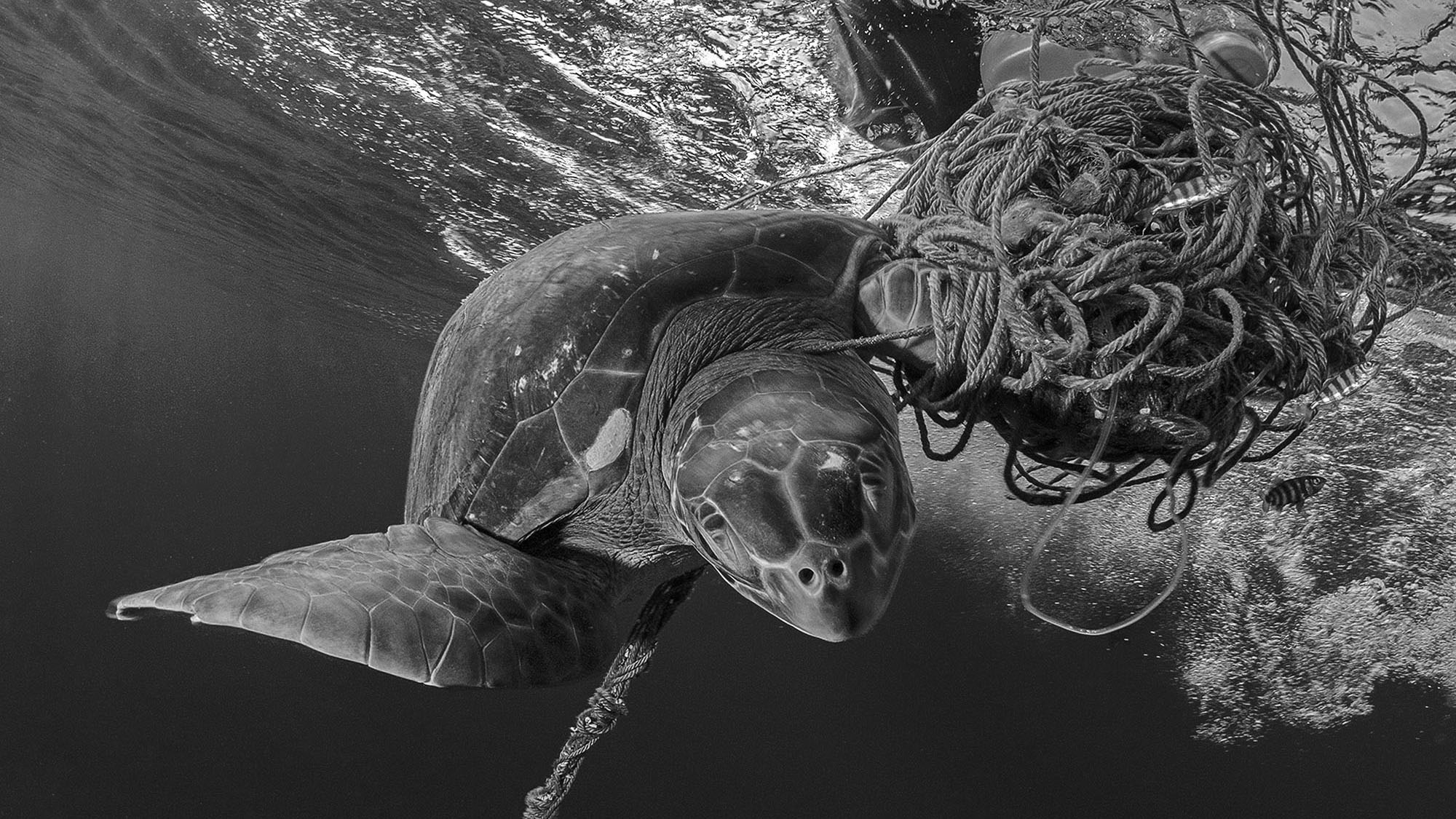People in the Galapagos Islands are using controversial longline fishing methods where hundreds of hooks are baited to catch fish but also catch everything from seabirds through to turtles and sea lions after the coronavirus pandemic caused tourists to stay away.
The method is controversial and should be prohibited in protected areas like the Galapagos Islands but the government has been relaxing the laws in what green campaigners say is the misguided belief that they are helping the local economy.
In an exclusive interview with Real Press, Jonathan Green, Director of the Galapagos Whale Shark Project, blasted the decision by the Ecuadorian government to allow longline fishing to encroach upon the protected marine wildlife sanctuary of the Galapagos.
Mr Green, 58, who is a Fellow of the Royal Geographical Society, a research scientist and an expedition leader, said that longline fishing will be “absolutely devastating” to protected species and ultimately will destroy the very reason that tourists come to the region in the first place.
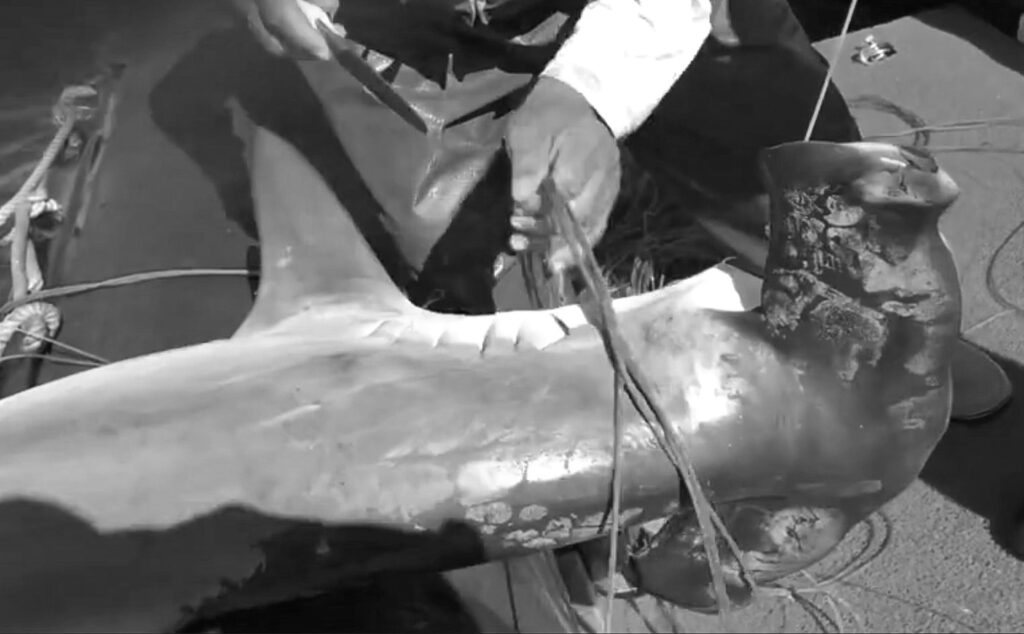
He named many of the marine creatures at risk from the practice ranging from rare sea turtles through to manta rays, seals and birds like the albatross.
He said the move by a minority in the island region has caused widespread outrage and added: “Anyone who has a vested interest in the future of this planet is absolutely horrified at this idea and quite frankly, even the fishermen themselves should be against this idea, because this does not benefit them either, neither in the short-term, nor in the long run.”
He said that sea lions and fur seals were showing up in areas frequented by tourists with injuries consistent with them having fallen victim to longlining. He said: “In the few areas where there is tourism, we’re getting these particularly horrific scenes with sea lions with huge big hooks coming out of their mouths.”
Tourism vessels and fishing vessels alike have come across some of these longlines, with Mr Green adding: “When they pull them up, they’re almost invariably full of bycatch such as turtles, rays, sea lions, and many endangered species such as sharks, and critically endangered species such as hammerhead sharks.”
He explained: “Currently, because of the economic situation in the Galapagos, where 80 percent of the people depend on tourism, and tourism has collapsed because of the pandemic, some of the local fishermen have asked for longline fishing to be allowed.”
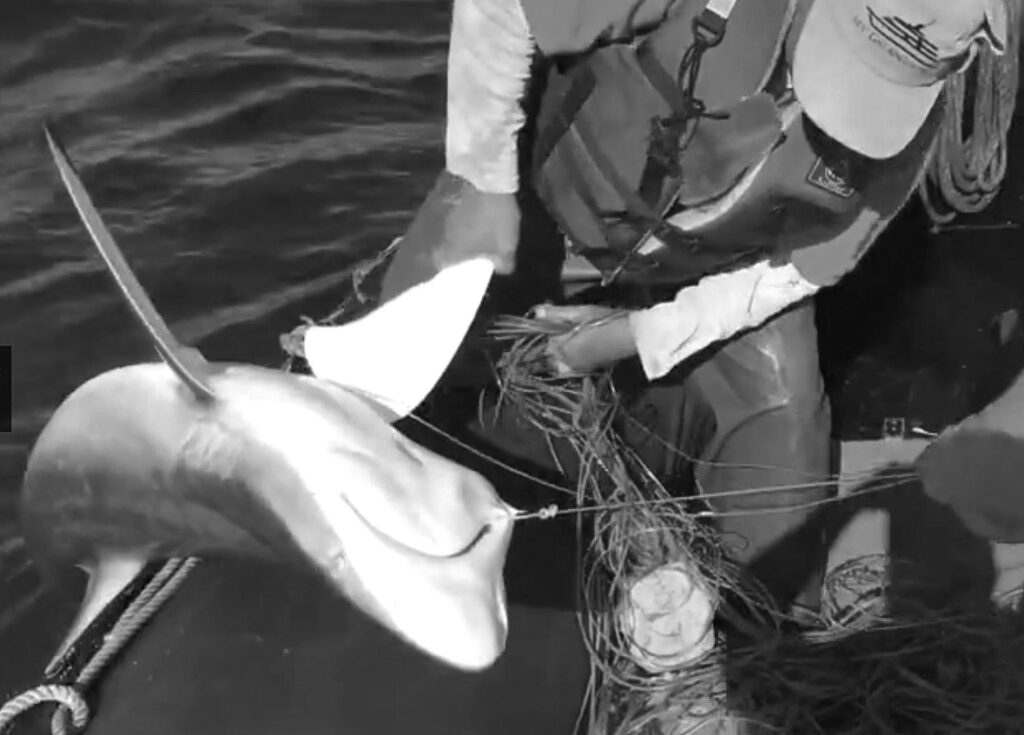
He says that they have called it by a different name, adding “but it is actually just longline, with up to about 100 hooks.”
He said that “it is being sold as an initiative to restart the economy. What they don’t realise is that it is one of the most devastatingly damaging methods of fishing and the bycatch is absolutely massive. And by bycatch, I mean that you’re not actually getting your target fish, which might be wahoo or it might be tuna, but you’re catching manta rays, sea lions, turtles, hammerhead sharks, and in many cases critically endangered species. The bycatch is often much higher than the targeted catch itself.”
Mr Green provided Real Press with this non-exhaustive list of species that he says are currently threatened by this new policy. He said: “Many are on the IUCN Red List and some are in Critical danger of Extinction.”
They include turtles such as hawksbill sea turtles (Eretmochelys imbricata), leatherback sea turtles (Dermochelys coriacea), as well as green sea turtles (Chelonia mydas) and olive ridley sea turtles (Lepidochelys olivacea).
There are also giant oceanic manta rays (Manta birostris) and mobula rays (Mobula), Galapagos sea lions (Zalophus wollebaeki), Galapagos fur seals (Arctocephalus galapagoensis), and even birds such as the waved albatross (Phoebastria irrorata).
Particularly threatened, as they are often targeted for their fins (used in cooking) by illegal Chinese fishing vessels and ships from other countries, according to Mr Green, are silky sharks (Carcharhinus falciformis), scalloped hammerhead sharks (Sphyrna lewini), smooth hammerhead sharks (Sphyrna zygaena), Pelagic threshers (Alopias pelagicus), mako sharks (Isurus) such as the shortfin mako shark (Isurus oxyrichus), and oceanic whitetip sharks (Carcharhinus longimanus).
Mr Green, who was speaking from the United Kingdom, where he is currently in lockdown due to local measures linked to the emergence of a new strain of coronavirus, said that this is just the latest threat faced by the islands. Indeed, he recalled how over the summer, Chinese fishing vessels had illegally “encroached upon the Galapagos marine reserve.”
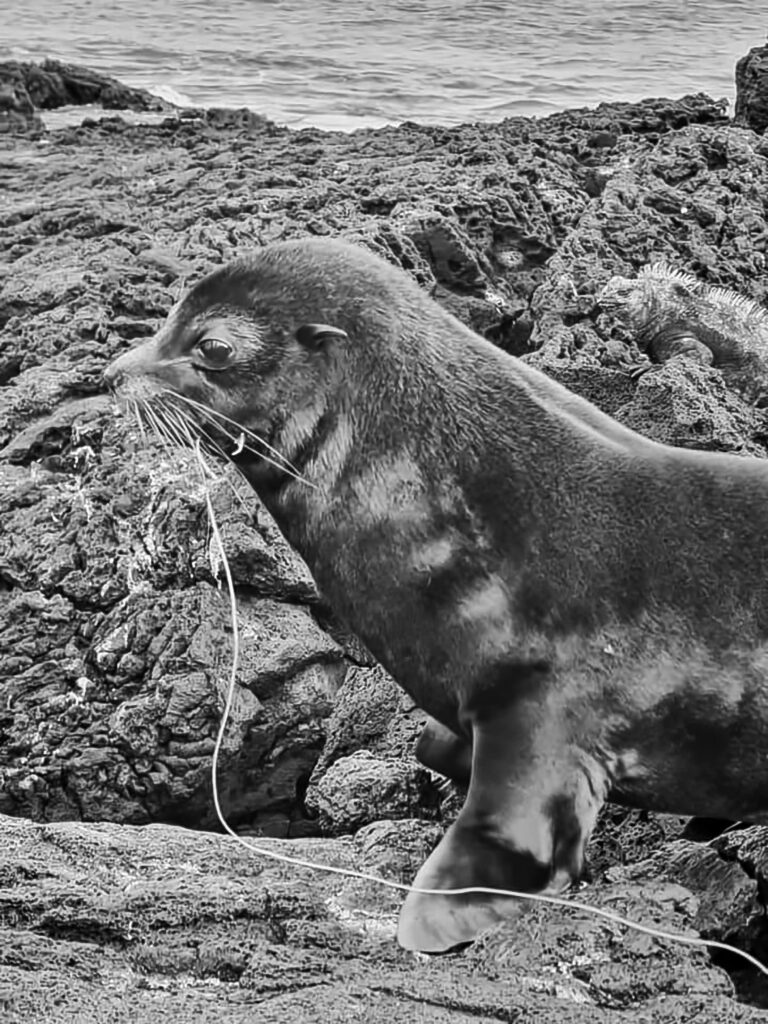
But he stressed that this new policy is of grave concern, not least because he said that he doubted that it would have been accepted under different circumstances. He said that the “desperation of local people”, due to the economic situation resulting from the coronavirus pandemic, is such that they feel like they have no alternative.
He added: “The government are probably trying to help in any manner that they can. Unfortunately, I think this is a particularly misguided and unhelpful act.” He said that the policy is terribly flawed because “in the long term, the only thing it is going to do is dissuade people from visiting the Galapagos.”
He said that it was being sold as a trial but he explained that in previous trials, because these hooks just catch anything that happens to be coming by, the levels of bycatch have reached 77 percent, and “only 23 percent of what actually ended up on the hooks was the target fish itself.”
He said that “absolutely everyone is up in arms except for a small number of fishermen who think that this policy could be beneficial.” He explained that currently, this policy is going forward with the support of the Ecuadorian government and technical advice been provided by the Galapagos National Park. But according to Mr Green, one of the solutions would be to look at how they can restart the economy with tourism and not with fishing, “and especially not with this kind of fishing, which is devastating to wildlife.”
Mr Green told Real Press that members of the public interested in helping to improve the situation could make donations to Galapagos Conservation Trust, which is based in London, in the UK, here: https://galapagosconservation.org.uk/donate/
In the US, donations can soon be made to the Galapagos Whale Shark Project that he runs, which he said should very soon have 501(c) status (nonprofit). He also encouraged people to make donations to local marine protection organisations.
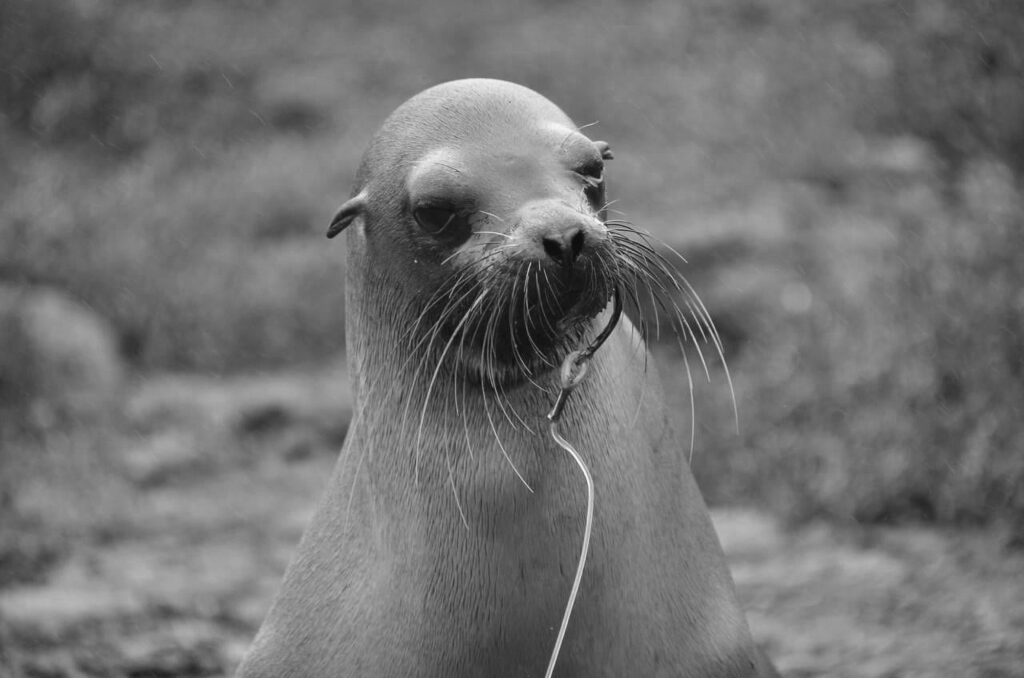
Donations can also be made here: https://www.islandconservation.org/galapagos-island-relief-fund/
Mr Green runs the Galapagos Whale Shark Project, which he started in the late 1980s with the goal of studying the mysterious species. The whale shark project team shared spectacular photographs and footage of one of the gentle giants.
He said that all of these problems in the area are also in extra could be linked to massive over fishing. Discussing Sir David Attenborough’s recent documentary, ‘A life on Our Planet’, he agreed that a tried and tested long-term solution would be to create more zones where fishing is banned, because this in turn leads to a spillover effect as replenished species of fish migrate out of the safe zones into areas where fishing is allowed.
Real Press contacted the Ecuadorian Ministry of Production, Foreign Trade, Investments and Fisheries as well as the Ministry for Environment and Water and the Galapagos National Park for comment but had not received a reply at the time of writing.
The Ananova page is created by and dedicated to professional, independent freelance journalists. It is a place for us to showcase our work. When our news is sold to our media partners, we will include the link here.

